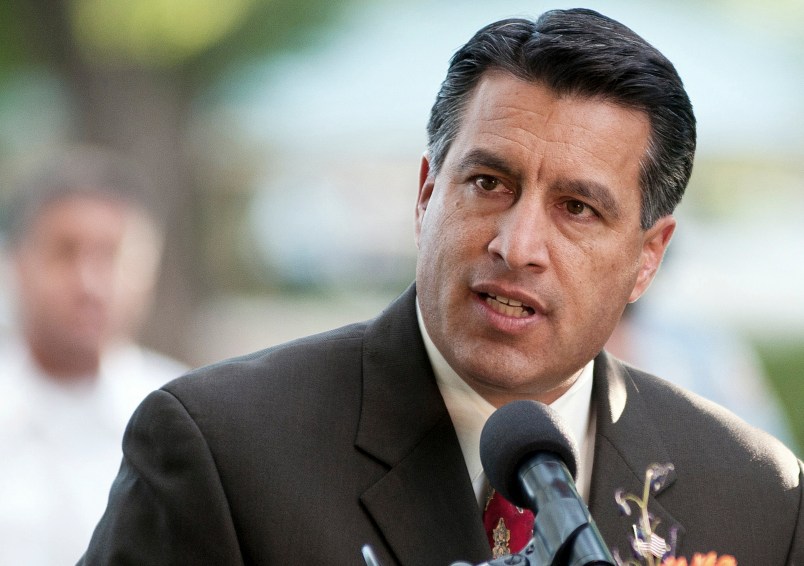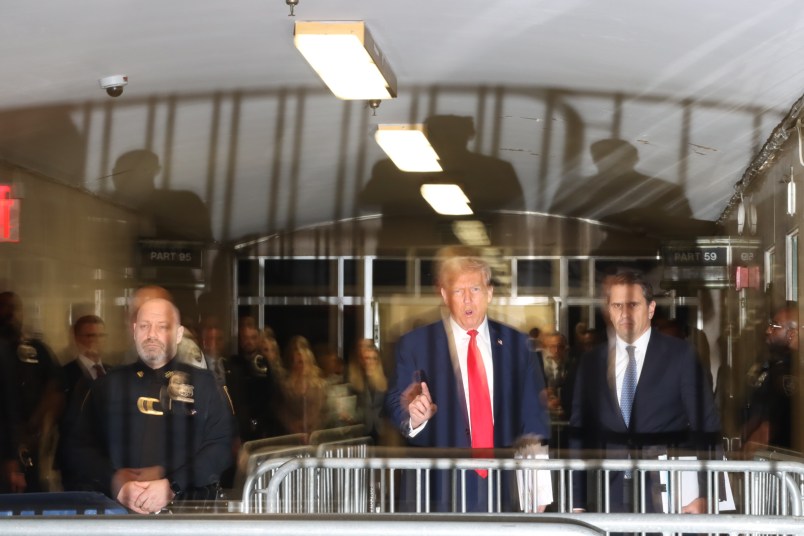WASHINGTON (AP) — Millions of people could lose health insurance subsidies in the coming months if the Supreme Court sides with opponents of President Barack Obama’s health care overhaul.
And one thing was clear this weekend as the nation’s governors gathered in Washington: Many of the states that could be affected are not prepared for the potential fallout.
In rounds of interviews at the National Governors Association’s winter meeting, several governors indicated they could do little about the estimated 8 million people who could drop coverage if they were to lose health insurance subsidies later this year — a scenario that legal experts suggest is a real possibility. While preliminary state-level discussions have begun in some cases, many governors charged that Congress should bear the burden of fixing any problems.
“That responsibility doesn’t fall in the hands of the states or the governors, it falls in the hands of the leaders right here in Washington,” said Wisconsin Gov. Scott Walker, who is contemplating a run for the Republican presidential nomination in 2016. He’s one of the many Republican leaders who resisted efforts to create a state-based health insurance exchange.
Indeed, while the Supreme Court deemed the health care overhaul constitutional more than two years ago, the Affordable Care Act still sits on shifting political sands.
The Supreme Court will hear arguments March 4 on whether the health care law allows the federal government to pay subsidies in states that declined to set up their own insurance markets, or exchanges. For many Americans, the subsidies make the insurance affordable. More than 30 states — largely those led by Republicans — declined to set up state-based systems and have exchanges run by the federal government instead.
“We declined to operate a state exchange along with a majority of other states,” said Indiana Gov. Mike Pence, a Republican who is also weighing a 2016 White House run and supports the repeal of the health care law. “Right now we’re just evaluating what our options are depending on what the Supreme Court decides.”
Coverage losses would be concentrated largely in Republican-led states across the South and Midwest that have resisted the law, among them Florida, Maine, North Carolina, Michigan, Texas, Virginia and New Jersey.
Residents of states that are running their own markets, including California and New York, would continue to receive benefits.
While few governors offered specific remedies this weekend, some governors in unaffected states signaled a willingness to allow neighboring states to join their exchanges, although the current law has no such provision and allowing states to pool the uninsured would require new legislation.
“I’m very interested in the concept. If we can work together with Utah and the other neighboring states that could work out well,” said Nevada Gov. Brian Sandoval, a Republican whose state has its own exchange and won’t be affected.
Most of his colleagues aren’t as confident.
“Nobody is quite sure what’s going to happen,” said Virginia Gov. Terry McAuliffe, a Democrat, who said leaders in his state believe they have until June 30 to put together contingency plans for an estimated 270,000 Virginians who may lose subsidies.
“We’re having conversations,” said New Hampshire’s Democratic Gov. Maggie Hassan, whose state is among nine that have a hybrid state-federal partnership. She said around 30,000 New Hampshire residents currently receive health care subsidies, while another 34,000 on Medicaid, set to be moved into the exchange next year, could also be affected. “It’s a significant issue,” she said.
Utah Gov. Gary Herbert, a Republican, predicted the chances of the Supreme Court striking down the subsidies are “maybe 50-50.”
“My expectation is that they’ll give us some time to adjust,” Herbert said, noting that he’s already spoken to House Speaker John Boehner about his concerns.
The ruling is expected in late June.
If the court agrees with the law’s opponents, the federal government and states would have little time for federal government and states to address the loss of subsidies. The health law’s 2016 sign-up season would be only months away. And most state legislatures are not in session during the summer.
Technically, a few tweaks from Congress would fix the problem. But after years of voting to repeal the health care law, Republicans are unlikely to come to its rescue.
“We’re afraid there’ll be another Washington standoff, and the hot potato comes back into our lap,” said Tennessee Gov. Bill Haslam, a Republican, who said as many as 250,000 Tennessee residents could lose subsidies. “You have governors of all types watching with a lot of interest.”
___
Associated Press writers Jill Colvin and Ken Thomas contributed to this report.
Copyright 2015 The Associated Press. All rights reserved. This material may not be published, broadcast, rewritten or redistributed.









